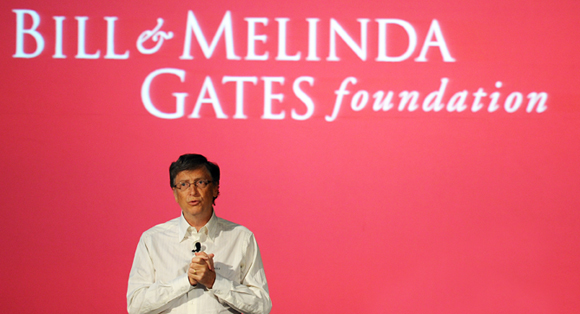| Sun | Mon | Tue | Wed | Thu | Fri | Sat |
|---|---|---|---|---|---|---|
| 1 | 2 | 3 | 4 | 5 | ||
| 6 | 7 | 8 | 9 | 10 | 11 | 12 |
| 13 | 14 | 15 | 16 | 17 | 18 | 19 |
| 20 | 21 | 22 | 23 | 24 | 25 | 26 |
| 27 | 28 | 29 | 30 | 31 |
CATEGORIES
RECENT ENTRIES
BLOG ROLL
Vested intellect
 It was about 5:30 p.m., more than 90 minutes before Bill Gates would appear at Rockefeller Chapel. The line for free, general-admission seating stretched from Rockefeller’s front door to 59th Street; west to University Avenue, where it turned north; and extended at least halfway to 58th. Standing four or five deep in places, people tried to calculate the crowd size and guesstimate the chapel’s capacity.
It was about 5:30 p.m., more than 90 minutes before Bill Gates would appear at Rockefeller Chapel. The line for free, general-admission seating stretched from Rockefeller’s front door to 59th Street; west to University Avenue, where it turned north; and extended at least halfway to 58th. Standing four or five deep in places, people tried to calculate the crowd size and guesstimate the chapel’s capacity.
Including a couple hundred reserved-ticket holders, there was room for about 1,700, so the people along University did not wait in vain—but they did wait. After the doors opened and the pews filled to capacity, an hour still remained before Gates’ scheduled talk. But he was virtually there already.
The Microsoft founder’s admirers passed the time with the products of his life’s work, tapping at laptop keyboards and video chatting; one person held up his computer and rotated it to give his remote companion a 360-degree view of the digital-Gothic scene.
Large monitors spaced throughout the chapel gave the audience in the back a better view. When Gates walked into the room, right on schedule at 7:15, heads bobbed and cameras flashed. For a moment, at least, the televised image wouldn’t do.
As rock stars go, Gates seemed modest, pacing as he spoke—never standing behind the lectern—and often clasping his hands as if in prayer. The ambitions he spoke of, on the other hand, were anything but modest. Out of the software business for a couple of years now, he directs his influence, intellect, and a lot of that Microsoft income toward other goals. Goals like saving the world.
That’s what brought him to Chicago, one of five stops on the Bill Gates College Tour (along with visits to Stanford, Berkeley, Harvard, and MIT). His tour’s stated intention was to inspire the smartest people to use their talents to combat the globe's biggest problems. Gates referred to a recent conversation with friends who spoke with passion and insight about the NCAA basketball tournament and the stock market; it made him wonder how to direct that intelligence toward more pressing concerns.
For the Bill and Melinda Gates Foundation, the immediate concerns are global health, education, poverty, and climate change. Those issues, Gates acknowledged, were not on his mind when he began building his corporate empire. As he traveled and learned, his increasing awareness at first served only to make them seem intractable. “You’re kind of set back by how daunting it is,” he said.
With the targeted action of people who have the advantages of health, wealth, and education, Gates is confident in major progress. He cites improvements in the last half-century as proof. In 1960, for example, 20 million children under five died; today it’s 9 million. But solving big problems, he said, depends on cumulative effort focused on them—as opposed to basketball brackets or derivatives—pooling the intellectual capital of the assembled crowd and their peers.
The audience spent half of the hourlong session asking Gates questions, but he in fact was hoping to hear answers from them. After discussing his philanthropy and technology—and declaring that he does not recommend dropping out of college, as he did—Gates left the crowd with three questions of his own, soliciting answers on the tour’s Facebook page: What problem are you working on? What draws you to it? How will you draw other people to it?
Submit your answers here.
Jason Kelly
April 28, 2010
